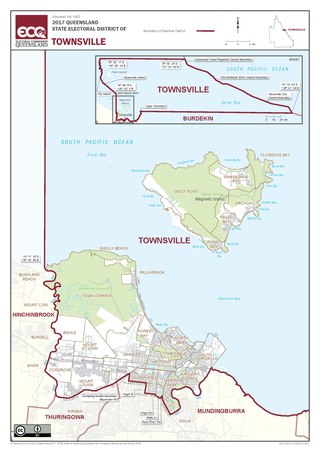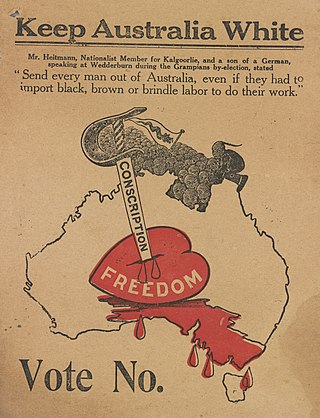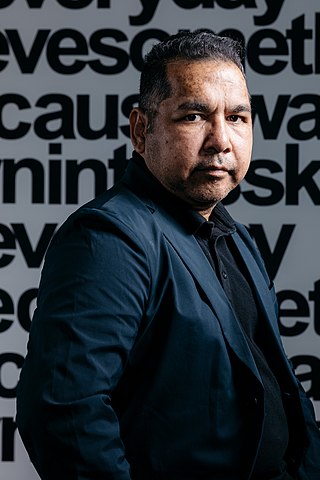
James Cook University (JCU) is a public university in North Queensland, Australia. The second oldest university in Queensland, JCU is a teaching and research institution. The university's main campuses are located in the tropical cities of Cairns and Townsville, and one in the city state of Singapore. JCU also has study centres in Mount Isa, Mackay, Thursday Island and Rockhampton. A Brisbane campus, operated by Russo Higher Education, delivers undergraduate and postgraduate courses to international students. The university's main fields of research include environmental sciences, biological sciences, mathematical sciences, earth sciences, agricultural and veterinary sciences, technology and medical and health sciences.

The Racial Discrimination Act 1975(Cth) is an Act of the Australian Parliament, which was enacted on 11 June 1975 and passed by the Whitlam government. The Act makes racial discrimination in certain contexts unlawful in Australia, and also overrides state and territory legislation to the extent of any inconsistency.

Palm Island is a locality consisting of an island group of 16 islands, split between the Shire of Hinchinbrook and the Aboriginal Shire of Palm Island, in Queensland, Australia. The locality coincides with the geographical entity known as the Palm Island group, also known as the Greater Palm group, originally named the Palm Isles.

Green Island is a marine island and locality in the Cairns Region, Queensland, Australia. In the 2016 census Green Island had a population of 25 people.

Fantome Island is one of the islands in the Palm Island group. It is neighboured by Great Palm Island and is 65 km (40 mi) north-east of Townsville, Queensland on the east coast of Australia. The island is small with an area of 7.8 km2 (3.01 sq mi) and is surrounded by a fringing reef. The Djabugay (Aboriginal) name for this island is Eumilli Island.

North Queensland or the Northern Region is the northern part of the Australian state of Queensland that lies just south of Far North Queensland. Queensland is a massive state, larger than many countries, and its tropical northern part has been historically remote and undeveloped, resulting in a distinctive regional character and identity.

Saibai Island, commonly called Saibai, is an island of the Torres Strait Islands archipelago, located in the Torres Strait of Queensland, Australia. The island is situated north of the Australian mainland and south of the island of New Guinea. The island is a locality within the Torres Strait Island Region local government area. The town of Saibai is located on the north-west coast of the island. According to the 2016 census, Saibai Island had a population of 465 people.

Fly Island is a tiny uninhabited island in the Great Palm Island group. Along with nine of the other islands within the Palm Islands group, it falls under the local government area of the Aboriginal Shire of Palm Island.

Coconut Island, Poruma Island, or Puruma in the local language, is an island in the Great North East Channel near Cumberland Passage, Torres Strait, Queensland, Australia. One of the Torres Strait Islands, Coconut Island is 130 kilometres (81 mi) northeast of Thursday Island. Administratively, Coconut Island is a town and Poruma Island is the locality within the Shire of Torres.

Townsville is an electoral district of the Legislative Assembly in the Australian state of Queensland. The seat is one of four within the Townsville urban area in North Queensland, and covers the Eastern and Northern suburbs of the City of Townsville as well as Magnetic Island and Palm Island.

The Aboriginal Shire of Palm Island is a special local government area of Queensland, Australia, managed by the Palm Island Aboriginal Shire Council under a Deed of Grant in Trust granted to the community on 27 October 1986. The local council was previously the Palm Island Community Council, which had far fewer powers. The shire is located on the Palm Island group, off the north Queensland coast near the city of Townsville.
The 2004 Palm Island death in custody incident relates to the death of an Aboriginal resident of Palm Island, Cameron Doomadgee on Friday, 19 November 2004 in a police cell. The death of Mulrunji led to civic disturbances on the island and a legal, political and media sensation that continued for fourteen years.
The trial of Lex Wotton relates to the events surrounding the Townsville, Queensland proceedings in the Federal Magistrates Court concerning the actions taken by Palm Island Aboriginal Shire Council member Wotton during the 26 November 2004 Palm Island riots.

Racism in Australia comprises negative attitudes and views on race or ethnicity which are related to each other, are held by various people and groups in Australia, and have been reflected in discriminatory laws, practices and actions at various times in the history of Australia against racial or ethnic groups.

Great Palm Island, usually known as Palm Island, is the largest island in the Palm Islands group off Northern Queensland, Australia. It is known for its Aboriginal community, the legacy of an Aboriginal reserve, the Palm Island Aboriginal Settlement. The original inhabitants of the island were the Manbarra people, also known as the Wulgurukaba, who were removed to the mainland by the Queensland Government in the 1890s. The island is also sometimes referred to as Bwgcolman, which is the name given to the Aboriginal and Torres Strait Islander people from disparate groups who were deported from many areas of Queensland to the reserve in 1918, and their descendants.

The Tall Man is a 2011 Australian documentary film directed by Tony Krawitz. It is about the death of Cameron "Mulrunji" Doomadgee in police custody on Great Palm Island, Palm Islands, Queensland on 19 November 2004.
Debra Sue Mortimer is an Australian judge who has been the Chief Justice of the Federal Court of Australia since 7 April 2023. She was born in New Zealand but has practised law in Australia. She has been a judge of the Federal Court of Australia since 2013, having previously been a Senior Counsel practising at the Victorian Bar in migration law, environmental law and anti-discrimination law.

Masig Island is an island and locality in the Torres Strait Island Region, Queensland, Australia. In the 2016 census Masig Island had a population of 270 people.

Vernon Ah Kee is a contemporary Australian artist, political activist and founding member of ProppaNOW. Based primarily in Brisbane, Queensland, Ah Kee is an Aboriginal Australian man with ties to the Kuku Yalandji, Waanji, Yidinji and Gugu Yimithirr peoples in Queensland. His art practice typically focuses on his Aboriginal Australian identity and place within a modern Australian framework, and is concerned with themes of skin, skin colour, race, privilege and racism. Ah Kee has exhibited his art at numerous galleries across Australia, including the Art Gallery of New South Wales (AGNSW) and the Museum of Contemporary Art Australia, and has also exhibited internationally, most notably representing Australia at the 2009 Venice Biennale and the 2015 Istanbul Biennial.

Palm Island Aboriginal Settlement, later officially known as Director of Native Affairs Office, Palm Island and also known as Palm Island Aboriginal Reserve, Palm Island mission and Palm Island Dormitory, was an Aboriginal reserve and penal settlement on Great Palm Island, the main island in the Palm Island group in North Queensland, Australia. It was the largest and most punitive reserve in Queensland.














